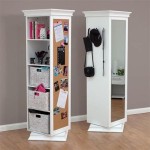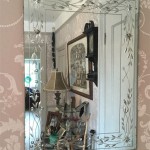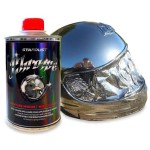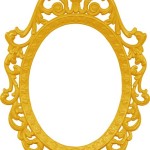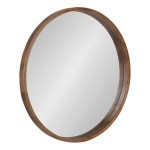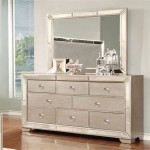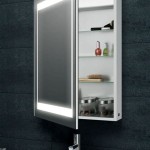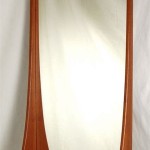Mirror Near Dining Table Feng Shui
The placement of mirrors in feng shui is a nuanced practice, affecting the flow of energy, or "chi," within a space. Dining rooms, as areas of nourishment and social interaction, are particularly sensitive to the influence of mirrors. Positioning a mirror near the dining table can have both positive and negative implications depending on what the mirror reflects and its overall placement within the room.
Positive Aspects of Mirrors Near Dining Tables
Mirrors strategically placed near a dining table can enhance positive feng shui in several ways. They can create a sense of spaciousness, amplify prosperity, and improve the flow of energy.
Key Points:
- Expansion of Space: In smaller dining rooms, mirrors can create the illusion of a larger area, fostering a more comfortable and welcoming atmosphere.
- Doubling of Abundance: Reflecting the dining table, laden with food, symbolizes a doubling of abundance and prosperity. This visual representation can attract greater wealth and fortune.
- Enhanced Brightness: Mirrors can reflect natural light, brightening the dining area and uplifting the overall energy. A brighter dining room promotes positive chi and encourages social interaction.
- Improved Energy Flow: Carefully placed mirrors can help redirect stagnant chi and improve its circulation throughout the dining space. This dynamic energy flow promotes a harmonious and balanced environment.
Negative Aspects of Mirrors Near Dining Tables
While mirrors offer potential benefits, improper placement can introduce negative feng shui elements. Reflecting clutter, sharp corners, or the main entrance can disrupt the energy balance and create unwanted effects.
Key Points:
- Reflection of Clutter: A mirror reflecting clutter doubles the visual impact of disorganization, creating a sense of chaos and impacting the flow of positive chi.
- Reflection of Sharp Corners: Sharp corners, considered "poison arrows" in feng shui, emit negative energy. Mirrors reflecting these corners amplify this negativity, potentially causing stress and discomfort.
- Reflection of the Main Door: Mirrors directly facing the main entrance can reflect the incoming energy back out of the home, hindering opportunities and prosperity.
- Over Stimulation: Too many mirrors in a dining room can create an overly stimulating environment, leading to restlessness and difficulty relaxing during meals.
Optimal Placement of Mirrors Near Dining Tables
Maximizing the positive effects of mirrors near dining tables requires thoughtful consideration of their placement. Strategic positioning can amplify abundance, enhance brightness, and promote a positive flow of chi.
Key Points:
- Reflecting Food and Pleasant Views: Positioning a mirror to reflect the dining table laden with food symbolizes an abundance of resources. Alternatively, reflecting a pleasant view, such as a garden or artwork, introduces positive energy into the space.
- Amplifying Natural Light: Placing mirrors strategically to reflect natural light from windows brightens the dining area and elevates the energy of the space. This creates a more welcoming and vibrant atmosphere.
- Avoid Reflecting Clutter or Sharp Corners: Careful placement ensures the mirror does not reflect clutter, sharp corners, or the main door, thereby avoiding the introduction of negative chi into the dining room.
- Consider the Size and Shape: The size and shape of the mirror should be proportionate to the dining area. An excessively large mirror can overwhelm the space, while a too-small mirror may not provide the desired effect.
Considerations for Specific Dining Room Layouts
Different dining room layouts present unique challenges and opportunities for mirror placement. Factors like the room's shape, the position of the dining table, and the location of windows and doors all play a role in determining optimal mirror placement.
Key Points:
- Long and Narrow Dining Rooms: Mirrors placed on the shorter walls can visually widen the space, creating a more balanced feel.
- Square Dining Rooms: Mirrors can be used to enhance specific features, such as artwork or a beautiful chandelier, adding depth and visual interest.
- Dining Rooms with Challenging Architectural Features: Mirrors can be strategically employed to soften sharp corners or offset awkward architectural elements.
Ultimately, the placement of mirrors near a dining table should be approached with mindfulness. Careful consideration of what the mirror reflects and its overall placement within the room is key to harnessing the positive effects of feng shui and creating a harmonious and nourishing dining experience.

Feng Shui In The Kitchen Mirrors

21 Feng Shui Mirror Placement Rules And Tips For Your Home Dining Room Wall Living Bedroom

How To Use Mirrors For Good Feng Shui 14 Steps With Pictures

How To Use Mirror In Dining Room Create Good Feng Shui

Learn All About Mirrors To Improve Your Feng Shui Mirror Dining Room Living Design Modern

Feng Shui Best Place For Mirrors Mirplus Mirplushome

Feng Shui Your Dining Table

21 Feng Shui Mirror Placement Rules And Tips For Your Home Fengshuinexus

5 Mirror Vastu Placement Tips For A Happy Home Livspace

Feng Shui Dining Room Tips For More Connection Fulfillment

